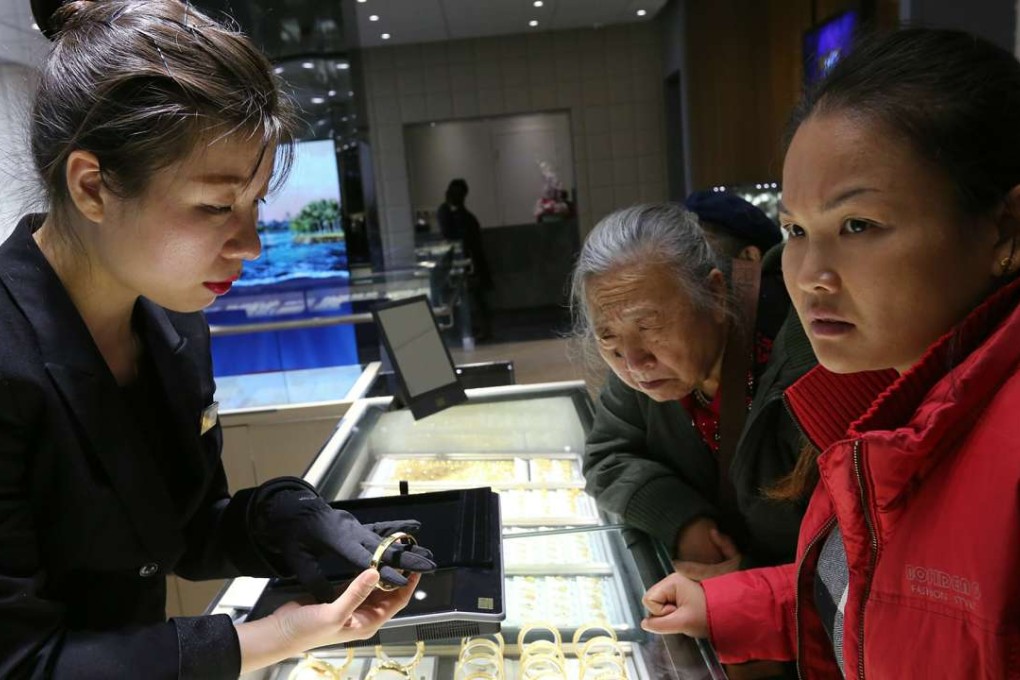Hong Kong’s new gold rush: ‘Big Mother’ investors from mainland China buy big as yuan falls and global economy shudders

China imported five times more gold from Hong Kong in May amid global and regional economic and geopolitical uncertainties, with gold traders expecting the trend to continue as prices keep rising and investors keep buying as a hedge to the falling value of the Chinese yuan.
Chinese customs data released last week showed imports from Hong Kong to the mainland increased in May mainly due to cross border shipments to meet mainland customer demand.
China’s total gold imports in the first half of this year amounted to 173 billion yuan (HK$200.6 billion). Of that, 45.8 billion yuan was gold imported from Hong Kong, up 5.5 times year on year.
Gold imports from Hong Kong represented 25 per cent of all imports of the precious metal into China in the first half of this year, compared with only 2.8 per cent in the same period last year. In comparison, the amount of gold China imported from Switzerland in the first half dropped 30.5 per cent year on year, South Africa fell 23.1 per cent and Australia decreased by 31.5 per cent.
Jasper Lo, chief executive of King International, said many mainlanders, especially “Big Mother”investors – elderly ladies who like to invest in the metal – were major buyers of gold, which has risen in price by 28 per cent this year, up 6 per cent in the last three weeks.
“The gold rally started in the beginning of this year due to the many uncertainties about US interest rate rises, the Brexit and the dispute over South China Sea sovereignty between mainland China and the Philippines. These uncertainties have seen gold become a safe haven for investors,” Lo said.